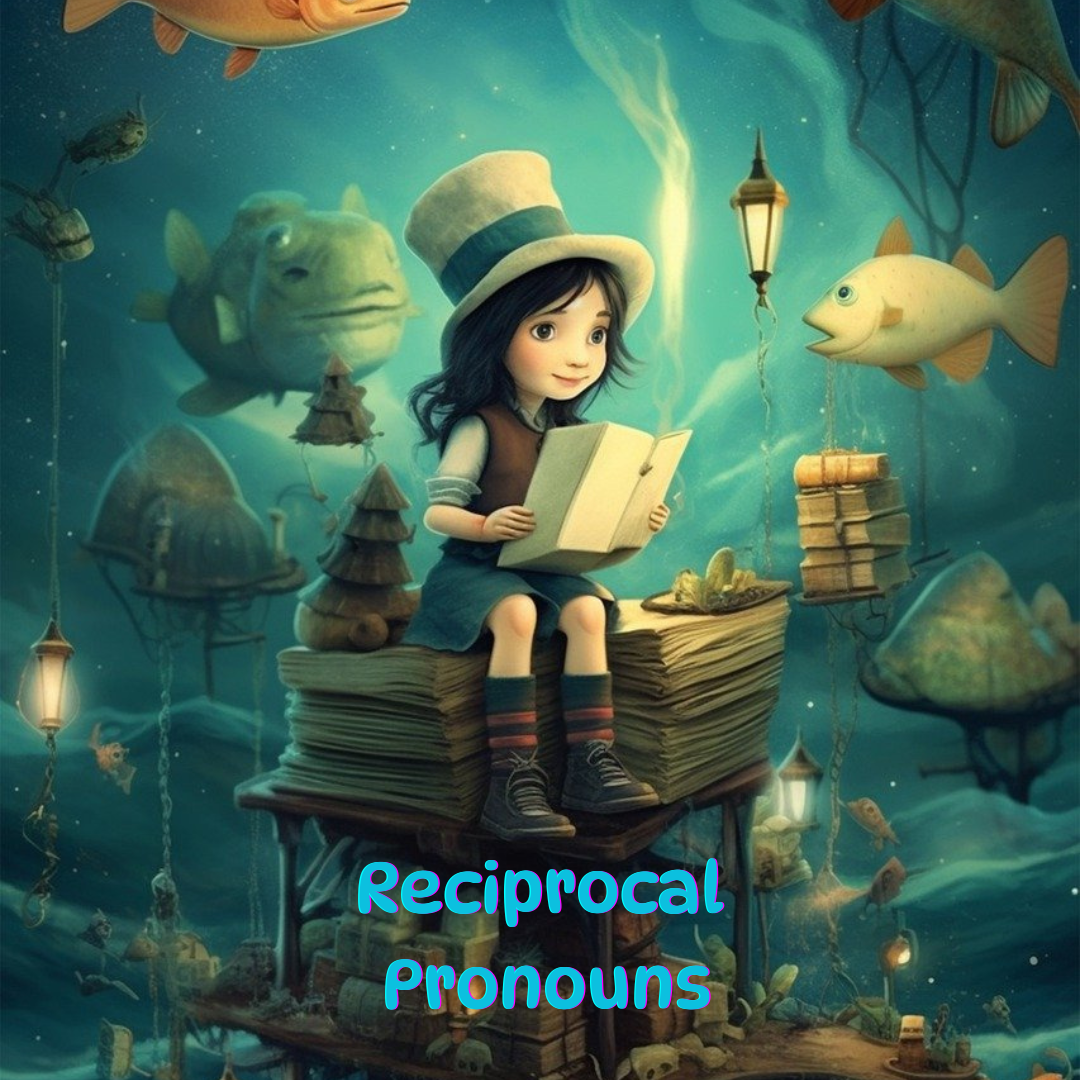Reciprocal Pronouns

Reciprocal Pronouns
Reciprocal pronouns are used when two or more people or things are performing the same action, or when the action is happening between them.
In English, there are two reciprocal pronouns:
each other and one another.
Each other is used when referring to two people or things.
One another is used when referring to more than two people or things.
Placement of reciprocal pronouns:
Reciprocal pronouns usually come immediately after the verb in a sentence.
They can also come at the end of a sentence or be split by other words.
Subject-verb agreement:
When using reciprocal pronouns with plural subjects, always use plural verbs.
Some examples of reciprocal pronouns in use are:
John and Jane love each other very much (referring to two people).
The team members congratulated one another after winning the championship (referring to more than two people).
We should all try to help each other when we can (referring to a general group of people).
The two cars crashed into each other at the intersection (referring to two things).
The students graded each other’s papers in class today (referring to a group of people).
It’s important to note that reciprocal pronouns can only be used
when the action is being performed by two or more people or things.
If the action is only being performed by one person or thing, then you should use a regular pronoun instead:
I love him very much (not “I love each other very much,” as there is only one person being referred to).
The car crashed into a tree (not the cars crashed into each other, as there is only one thing being referred to).
The Types of the English Pronouns
Subject Pronoun/ “One” and “They” as subject meaning